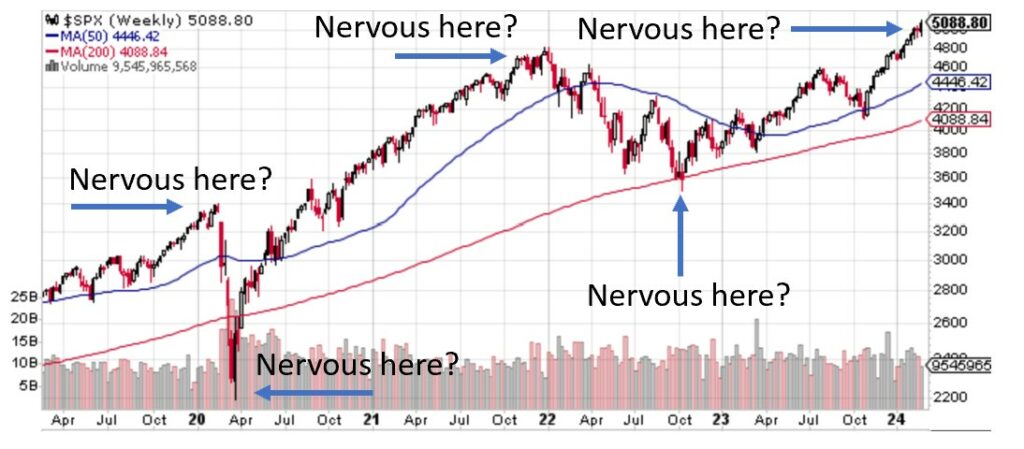Feeling a bit nervous? Maybe fears of a sell off? Maybe even a little FOMO (fear of missing out)?
The three popular U.S. large cap equity indices (S&P 500, Nasdaq 100, Dow Jones Industrial Average) have all recently hit new all-time highs. When you throw in dividends from a total return perspective, the highs are even higher. At these levels, more and more people get nervous that we’ve come too far too fast, we need a pullback, everything is frothy, the market performance is too concentrated, yada, yada, yada. Could this be true? Sure. Should you care? Maybe not if you’re a long-term investor.
Investing can drive emotions for a lot of people – novices and professionals alike. The issue is that when emotions drive investment decisions, it often doesn’t work out well. Emotions are a short-term thing, investing should be a long-term thing. Don’t forget that.
So what should you do?
If you are a long-term equity investor holding a diversified group of high-quality growing companies where valuations over the short-term appear a bit elevated relative to the historical average, just consider setting your expectations that future performance may be less than what it’s been in the past.
If your asset allocation is a little out of whack because of outperformance of certain areas of the market (high quality mega-cap “technology” companies, the “Magnificant 7”, etc.), then just consider rebalancing back to your target allocation.
Have you defined your “drier powder” yet? Do you have investments that you can utilize as a source to allocate from if your higher volatile equities decline? You may want to consider that strategy as well.
It’s ok to keep investing simple.
If you think you’re a great hedge fund trader to quickly overweight/underweight certain areas, go to cash because you want to be “defensive” because you “feel” the market is going to crash, tactically trade market technicals, etc., good luck. I’m not doing that. I’m sticking to my long-term strategy.
S&P 500 Index

